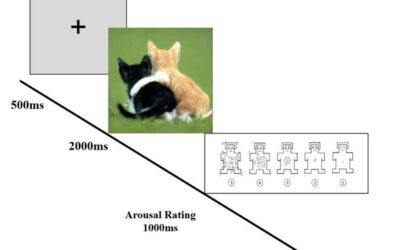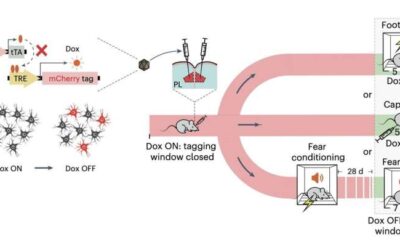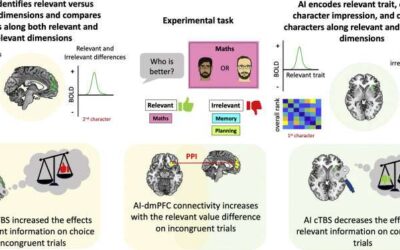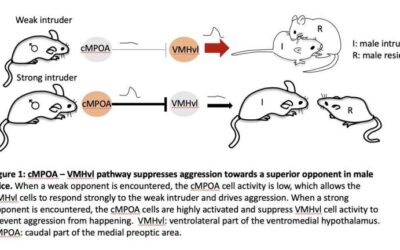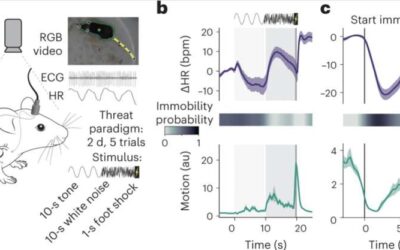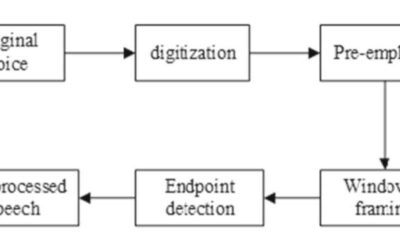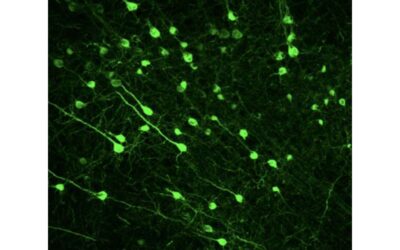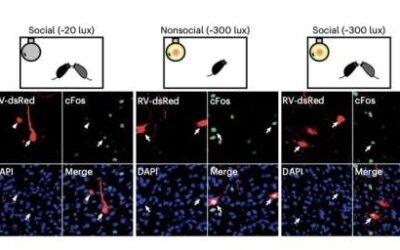Meditation practices can often positively influence the lives of practitioners, for instance, improving their emotional well-being, reducing stress levels and increasing their focus on daily activities. While some meditators practice in silence without any external...
Psychology & Psychiatry
Mindfulness meditation could mitigate the adverse effects of fatigue on emotional processing
Fatigue, which can be defined as lacking energy and the motivation to do things during the day, is a very common symptom that most humans will experience at least once in their life. While it is sometimes linked to medical conditions, in most cases it is caused by...
Fearful memories of pain stored in the prefrontal cortex could shape the experience of pain later in life
While pain and fear are very different experiences, past studies showed that they can sometimes be closely related to one another. For instance, when many animals and humans are in dangerous or life-threatening situations, acute fear can suppress their perception of...
Study shows that thinking hard about complex problems results in distinct facial muscle movement patterns
Psychology theories suggest that humans tend to primarily invest significant mental resources on problems that will reward them for their efforts. More specifically, they propose that before they start thinking in great depth about a problem, humans ponder on whether...
A neural pathway involved in separating and selectively sorting through social information
Humans are innately able to separate information regarding others in their social circle depending on their needs and what they are looking for. For instance, they might contact a friend who is a lawyer if they need advice with a legal matter or contact an empathetic...
A neural circuit that suppresses male aggression when an opponent is physically advantaged
For decades, neuroscientists have been trying to understand the neural mechanisms underpinning different social behaviors, including aggression. Aggressive, violent, or confrontational behaviors are common among humans and many animal species, yet the neural processes...
A framework characterizing the cardio-behavioral responses associated with fear and anxiety
Anxiety disorders are becoming increasingly common, with estimates suggesting that almost one in three people in the U.S. will experience high levels of anxiety at some point in their life. Anxiety is essentially a feeling of unease, worry or psychological discomfort,...
Using deep learning to detect depression from speech
Artificial intelligence (AI) tools have achieved promising results on numerous tasks and could soon assist professionals in various settings. In recent years, computer scientists have been exploring the potential of these tools for detecting signs of different...
A neural substrate that may modulate sex differences in motivation
Psychology research conducted over the past few years suggests that males and females can preferentially engage in different decision-making strategies. The precise neural underpinnings of these reported gender differences in decision-making, however, remain unclear.
Different serotonergic pathways to the amygdala could underpin distinct anxious behavioral patterns
Anxiety disorders are widespread mental health conditions that affect approximately one in five people. They are characterized by varying degrees of nervousness, apprehension and fear, typically associated with catastrophic thoughts about imagined or potential threats.


